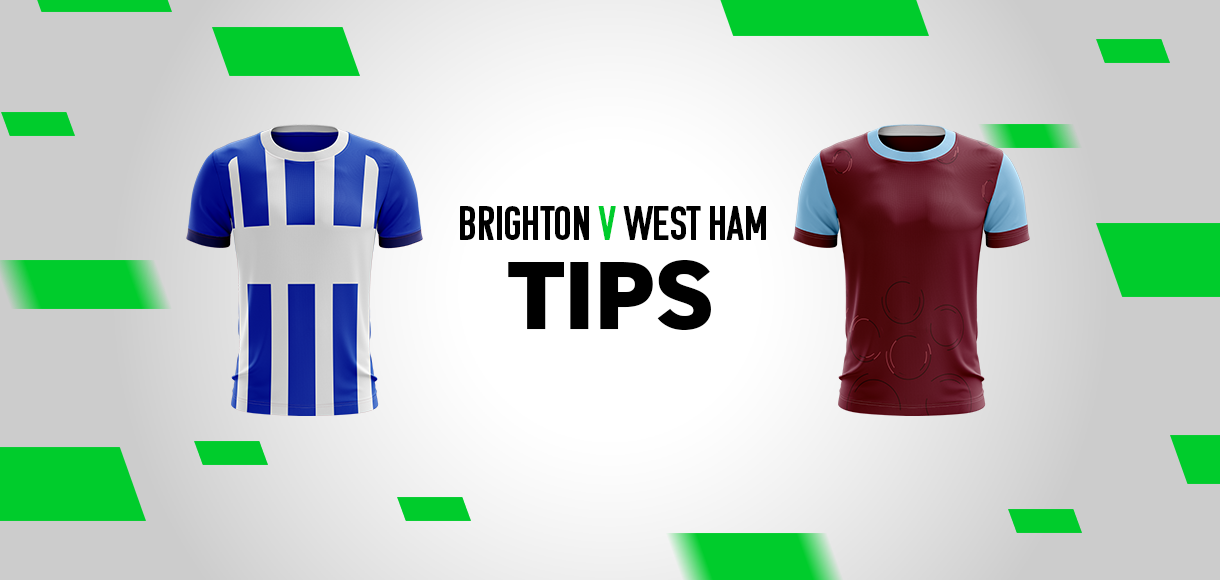Why Man City are favourites to win the 2020/21 Premier League
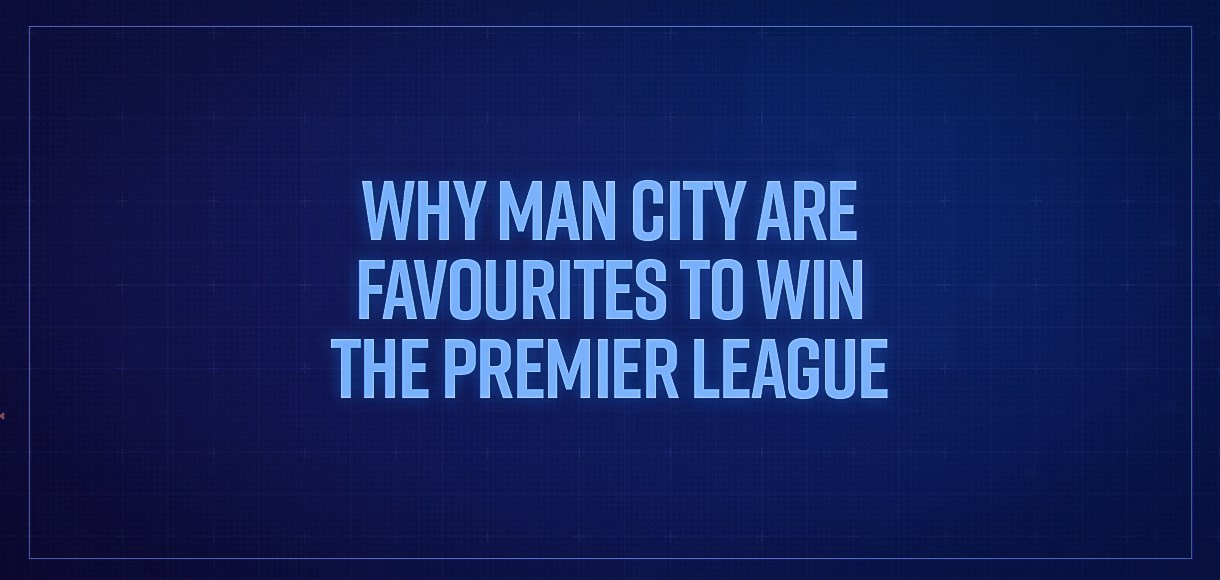
Expert Alan Alger explains how outright football markets are put together and why Manchester City are odds-on favourites to win back the Premier League this season.
How do outright markets work?
The Premier League title is an outright market for 20 teams, but it’s formed on a league season that will feature 380 matches.
Those individual match prices are vitally important for producing the overall outright market – and all the other markets like relegation and top-half finish.
The outright prices aren’t generated from analysing 380 matches, though.
Amazingly, a trader will virtually play out a Premier League season 10,000 times, analysing 3.8 million matches, at the click of a button before finalising the outright odds.
In order to do that accurately, the assessment of each team needs to be spot on.
The trader in charge of Premier League markets has a ratings spreadsheet which orders every team in the division.
Most ratings systems work to a range of between 0 and 1000. Teams are placed along that scale, with the intervals between them signifying their superiority over each other. A margin of 100 is roughly equivalent to one goal’s superiority at a neutral venue.
It’s a juggling act to make all 20 teams fit to their exact rating out of 1000, but it would start something like this.
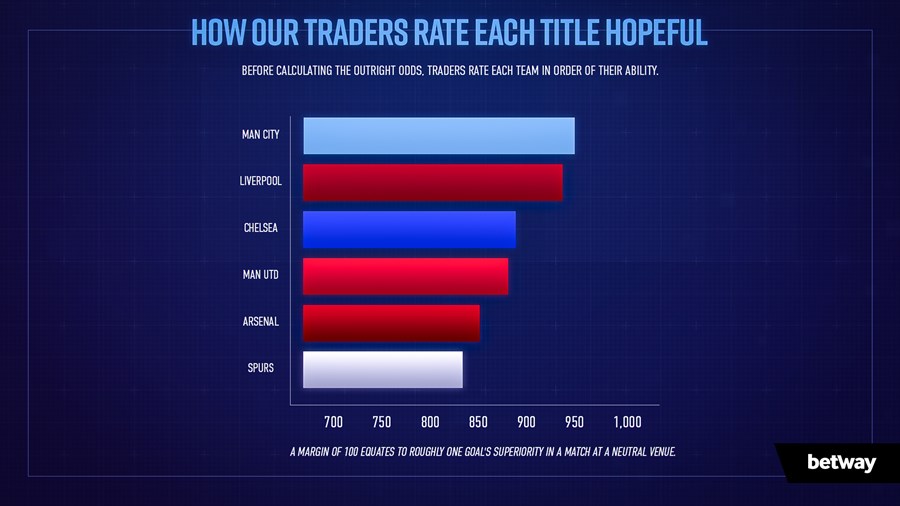
The trader knows that, for example, Manchester City are about one goal superior to Tottenham at a neutral venue.
That means that the rating for City is 100 points above Newcastle (1 x 100). So if City’s rating is 950, Tottenham’s rating is about 850.
From there, other teams are placed on the scale. Chelsea, for instance, are about three-quarters of a goal inferior to Man City if they meet at a neutral venue, so they’re 75 points under City’s rating at 875.
We then start to see the jigsaw coming together.
Fractions of a goal are, of course, impossible in the real world, but what we’re looking for here is a correct determination of how much better one team is than the other.
So if City played Tottenham 10,000 times at a neutral venue, the average winning margin for City across those matches would be one goal.
Why are Manchester City rated above Liverpool?
Now we come onto the battle between Manchester City and Liverpool.
City remain title favourites because their overall rating has been ahead of Liverpool’s for a long while and still is – just about.
Contrary to the cliché, league tables do lie. A table is based on what has happened – including lucky goals, unlikely errors and random refereeing decisions.
There’s no strong evidence that these things even themselves out over a 38-match season.
Liverpool outperformed their rating for a huge part of the 2019/20 season, but part of the reason for that is that those random elements went in their favour.
Think back to Leicester City’s title triumph in the 2015/16 season.
Most traders’ spreadsheets were showing that Claudio Ranieri’s men would win the title roughly twice if the league season was played out 10,000 times, hence those famous 5,000/1 odds. There has been much debate within the industry about whether those odds were wrong or whether Leicester’s triumph was that much of a freak occurrence.
The more interesting debate, though, was what the price should be for them to repeat the feat in 2016/17. Could they really continue to outperform the maths?
Some firms offered as low as 25/1, which ended up being a very bad bet.
Liverpool’s 2019/20 title victory was obviously nowhere near as freakish as Leicester’s, but the same principle stands. The fact that a team wins the title once doesn’t automatically make them the best team.
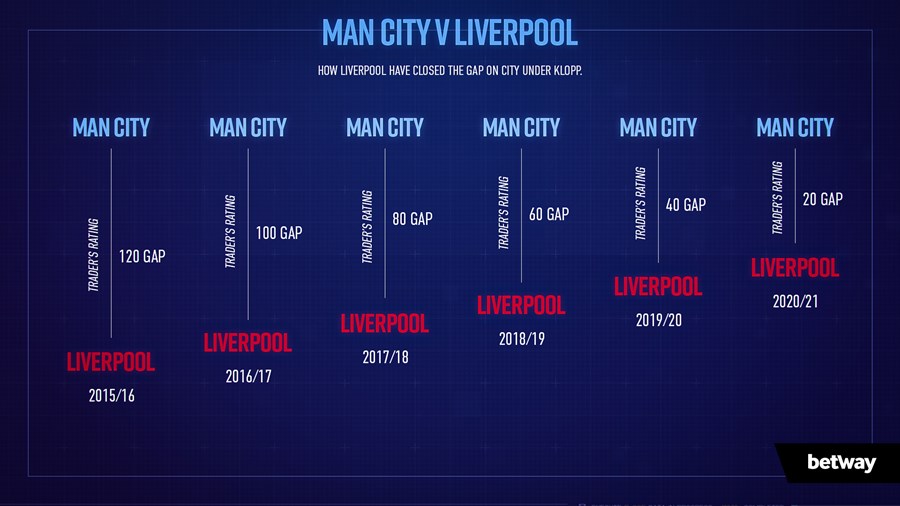
It was Liverpool’s ability to perform above their rating, and City performing well below theirs, that saw the title go to Anfield in 2019/20. You’d expect a correction in both of those things over the next year.
An interesting development in the last decade or so has been the prominence of ‘expected goals’ (xG), which gives a better idea of a team’s true level than just match results.
Those figures have been used by industry professionals for a while now. A team losing three consecutive matches might prompt a casual observer to assume that they have become a worse team, but if xG figures show that they were unlucky in those games, traders are unlikely to change their ratings much.
Last season, City comfortably outperformed Liverpool on xG, suggesting that they would have come out on top more often than not if the season was played 10,000 times.
Though City remain title favourites, Liverpool have massively closed the gap to about 25 (a quarter of a goal) in the last 18 months and the two teams are miles clear for the coming season.
How are the odds calculated?
Once the traders have established their ratings at neutral venues, they need to add home advantage into the mix in order to produce the true match odds that they can feed into the machine.
In the Premier League, home advantage equates to roughly 0.5 goals –the equivalent of 50 ratings points (not factoring in minor adjustments made for behind closed doors games).
If a team with a rating of 950 (Man City) hosts a team with a rating of 750 (Newcastle), they would be 2.5 goals superior, as you add 50 points onto their rating to turn it into a 1,000 v 750 match.
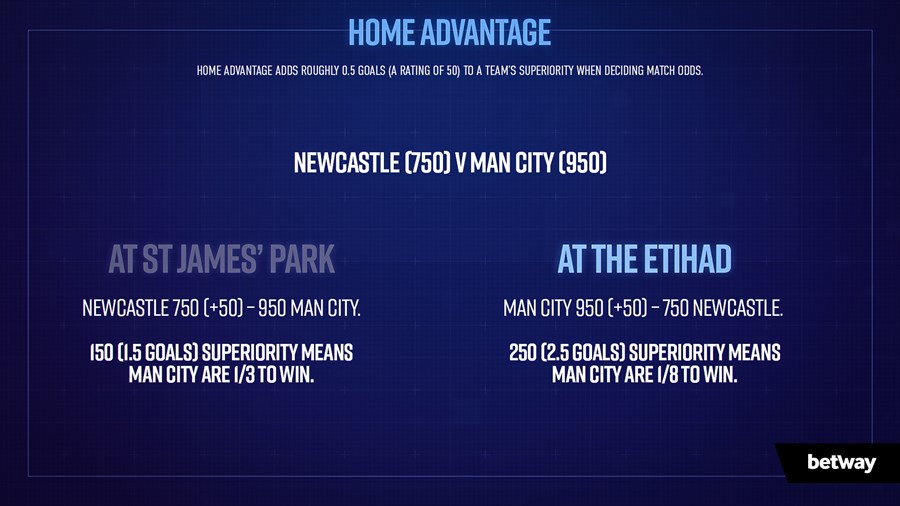
The traders then use all of their individual match ratings to produce the match prices that are fed into the computer.
When the trader clicks the button to simulate each of the 380 matches over 10,000 times, the system in a micro-second looks at all of the teams, all of the ratings, the home team and the away team for each match and the odds for each match.
In an instant the trader will be given a virtual average league table from those 10,000 seasons, which will be an accurate reflection of the percentage chance of all occurrences for that coming season.
Those percentage chances are then converted into odds.
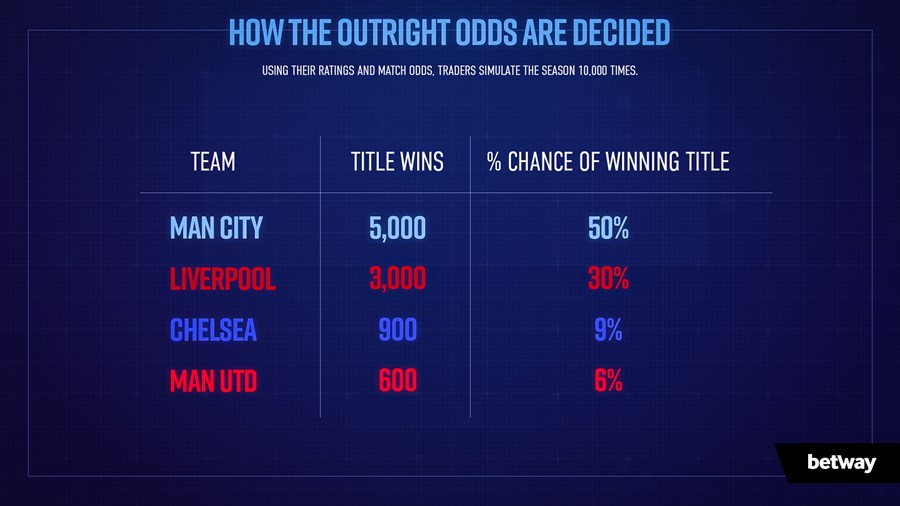
For example, if 200 of those 10,000 league seasons resulted in Tottenham winning the league then their odds (give or take some profit margin) for winning the league next season come to about 50/1.
Manchester City – due to their higher rating – win the league much more often than Liverpool across the 10,000 simulations, and they are therefore favourites to win the 2020/21 Premier League title.
Visit Betway's football betting page.











